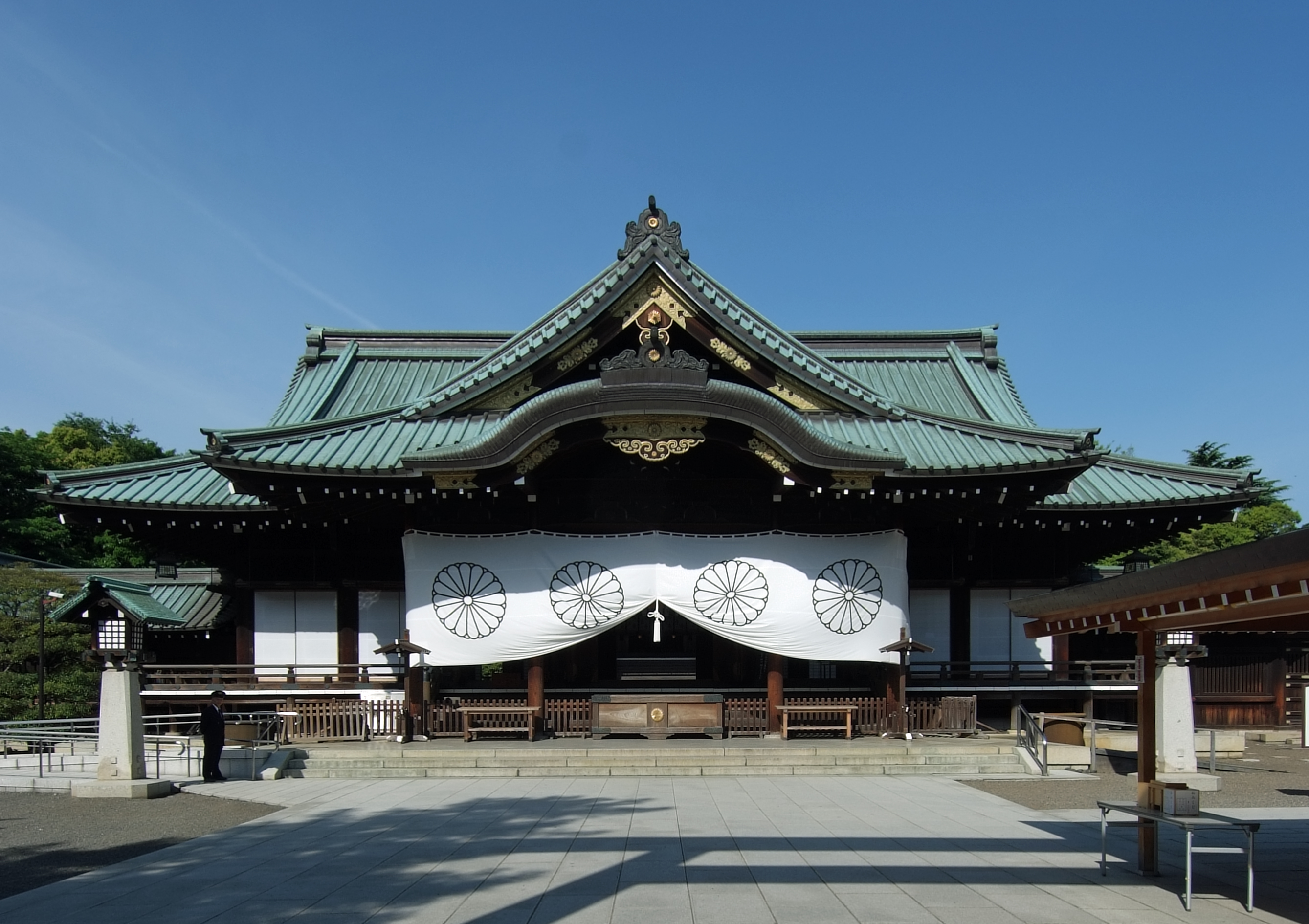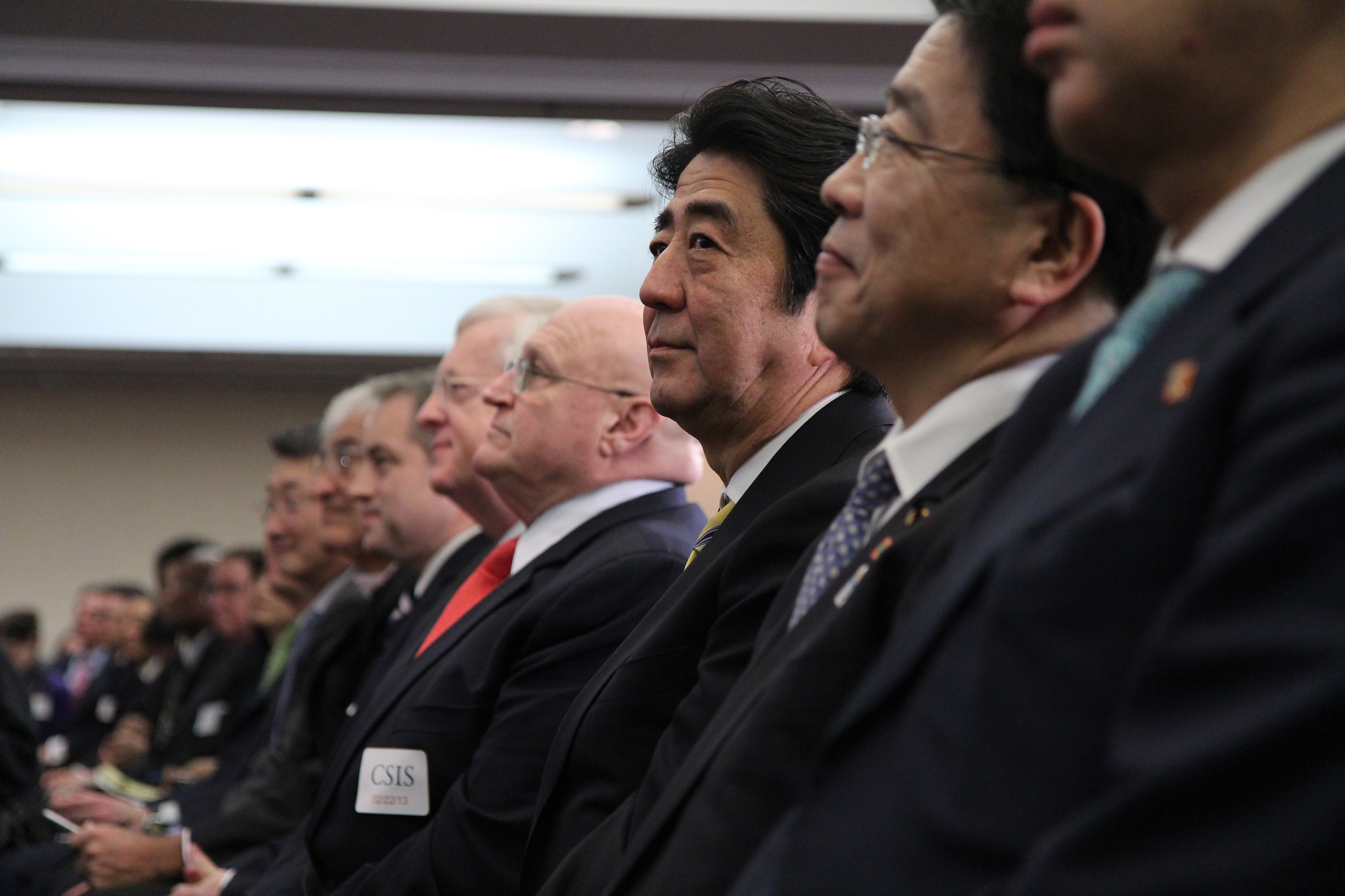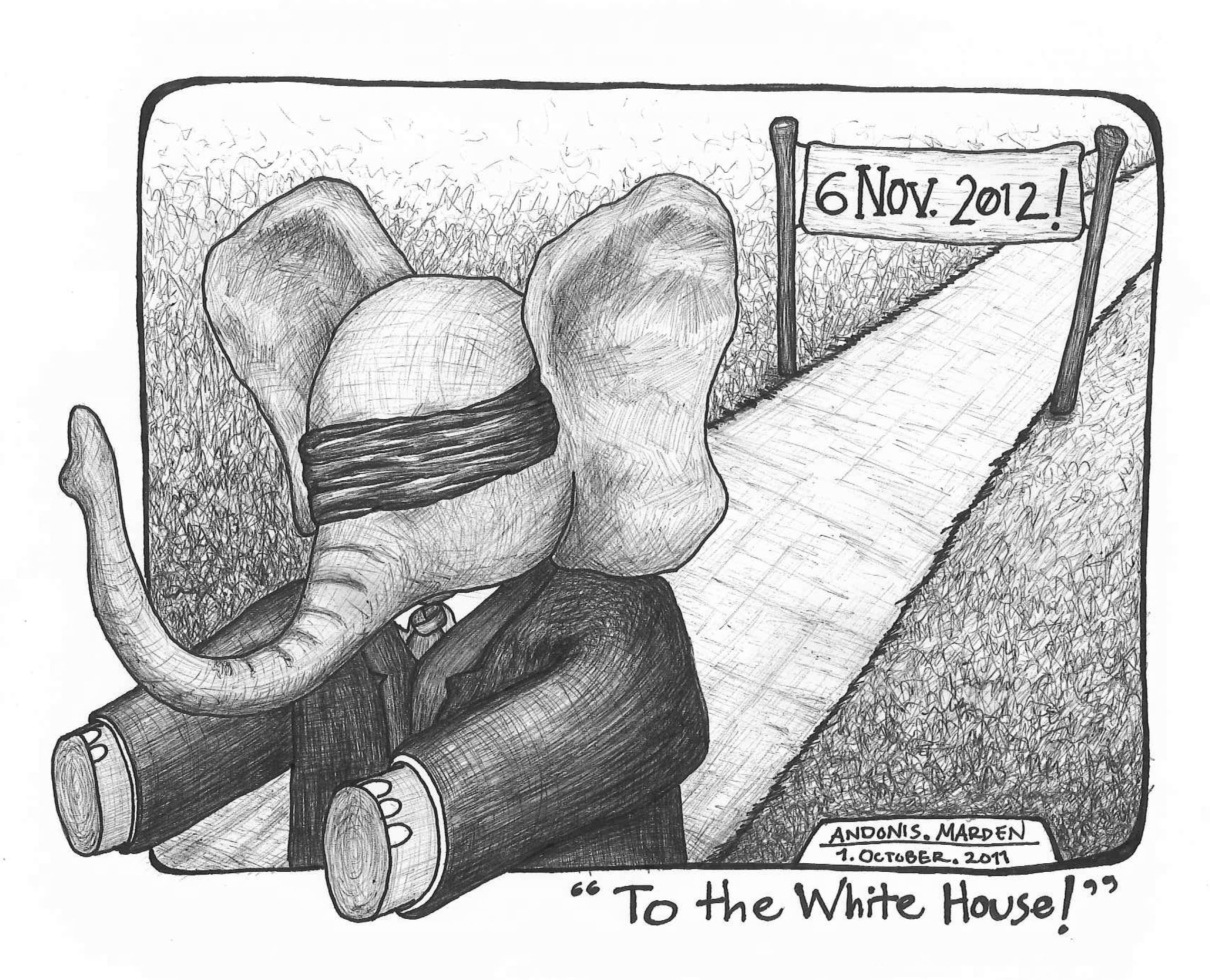On September 3rd Japanese Prime Minister Shinzo Abe reshuffled his cabinet, a common political action in Japan, often used as a way of maintaining support. The new cabinet included five women, which was widely considered a nod to female voters and a move to make politics more inclusive in a country with very few women in political and corporate leadership positions.[1] According to the United Nations only 8.1% of Japan’s lawmakers are women.[2] Some of the notable women included in the new cabinet were Yuko Obuchi, the daughter of a former Prime Minister and a rising political star, and Midori Matshuma, who was appointed to the important post of Justice Minister.[3] In the Japanese press the reshuffling was hailed as a daring political move to increase female voter support for Prime Minister Abe, whose domestic economic plan — including a hefty sale tax hike — has caused his approval rating to dip in recent months.[4] Although the shuffle was welcomed as a progressive move to help tackle the host of obstacles that women face in Japan, it was also an important political move from an ultra-nationalist Prime Minister, who hopes to loosen Japan’s strict pacifist constitution. The Prime Minister and the five newly appointed women all belong to the Liberal Democratic Party (LPD), the largest conservative party in Japan, known for advocating the privatization of state enterprises and the remilitarization of Japan. The new ministers are also members of a conservative organization called The Japan Conference, which advocates for more extreme policies than the LPD. The appointment of five new conservative women to Abe’s cabinet may signal a move to the right for an already nationalist administration. This shift toward more extreme conservative politics has, and will continue to, strain relations between Japan and China. The Japan Conference, the denial of the dark parts of Japan’s history, and the ever present Chinese fear of a remilitarized Japan all stand to negatively impact Japan-China relations.
Of the five women recently appointed to Abe’s cabinet, three of them belong to a lawmakers group with ties to an organization called Nippon Kaigi, or The Japan Conference. Interior Minister Sanae Takaichi, Women’s Affairs Minister Haruki Arimura, and Eriko Yamatani, the minister in charge of public safety, are all affiliated with The Japan Conference.[5] Abe’s cabinet is comprised of 19 members in total. Fifeteen of these, including Abe himself, are members of The Japan Conference.[6] Formed in 1997, The Japan Conference boasts over 35,000 members and makes up much of Abe’s conservative base.[7] The organization is concerned with spreading conservative ideals, constitutional revision, moral education, and the importance of the imperial family.[8] The group has also published books such as Jugun ianfu kyousei renkou ha nakkata (The Military Comfort Women Were Not Forced), a volume denying the forced sexual slavery of over 200,000 Korean women and girls during World War II.[9] Controversial documents like this expose the questionable intentions of The Japan Conference. The Conference views the revision of history in favor of the denial of Japanese war crimes during World War II as the key to increasing support for a remilitarized Japan. The Japan Conference has also expressed similar views on other Japanese atrocities such as the Nanjing Massacre, from which they believe the death toll expressed by Chinese authorities is grossly exaggerated.[10]
The newly appointed cabinet members are not only part of The Japan Conference, but have also actively promoted an agenda that advocates controversial visits to war shrines and the revocation of official Japanese war crime apologies. The newly appointed Interior Minister, Sanae Takaichi, while serving on the LDP’s Policy Research council, suggested that the Japanese government rescind the Kono Statement in 2015, on Japan’s 70th anniversary of its surrender from World War II.[11] The Kono Statement was a landmark 1993 apology issued by the former Chief Cabinet Secretary that apologized for the “comfort women:” 200,000 primarily Korean women forced into sexual slavery by the Japanese military. Another minister, Eriko Yamantani, has previously made comments that denied the existence of “comfort women.” Haruki Arimura and Sanae Takaichi also visited the controversial Yasukuni Shrine in October, just a day after Prime Minister Shinzo Abe sent an offering to the shrine.[12] The shrine honors 14 Class-A World War II war criminals along with millions of other war dead. Visits to this shrine have been known to inflame regional tensions between Japan and its neighbors, primarily China and Korea. The controversial shrine visits suggest that the new cabinet is already trying to provoke anger in China. Chinese officials issue harsh responses to such visits, and anti-Japanese protests are common in China. Experts often point out that anti-Japanese protests are one of the only forms of protest allowed in China.[13]

In addition, Shinzo Abe has proposed Japanese history textbook revisions to promote a more patriotic and less masochistic tone.[14] These revisions coincide with China’s increased assertion of growing strength in both East Asia, and in places such as Korea, Mongolia, Nigeria, and South Africa.[15] The Chinese government is likely to be in strong opposition to Japanese revisionist history, especially given China’s relative position of power. The proposed textbook changes affect historical events that are extremely important in contemporary China: the proposed changes would lower the death toll of the Nanjing Massacre and promote the narrative that Japanese soldiers never forced Korean or Chinese women into becoming “comfort women”.[16]
As organizations like the Japanese Conference grow in membership and influence in the Japanese government, such changes in political tone could continue to obscure Japan’s war crimes. This development worries the Chinese government, because Beijing views the Abe administration’s goal of dismantling Japan’s pacifist constitution as closely tied to the denial of Japanese war crimes.[17] The Abe administration’s disregard for adverse historical events may cause the Chinese government to act on other issues and territory disputes. The recent Asia-Pacific Economic Cooperation (APEC) forum offered a potential opportunity for Sino-Japanese ties to be defrosted, but a commentary published by the official Xinhua news agency on the annual APEC meeting in Beijing indicated the opposite had occurred:
“China and South Korea, suffering from huge civilian casualties and economic losses due to Japan’s invasion, were also alarmed by Abe’s dangerous efforts to increase military build-up, lift restrictions on overseas battling and reinterpret the war-renouncing constitution. In short, it seems nothing more than a mere clumsy political stunt for the island country to advocate dialogue and fence-mending with neighbors on the one hand, while sticking to the bigoted course of fomenting strife and misgivings on the other.[18]”
The issue of revisionist history will continue to negatively affect talks between Japanese Prime Minister Shinzo Abe and Chinese President Xi Jingping, even during multilateral economic meetings. The same news commentary also referred to the three new ministers’ visit to the Yasukuni Shrine as a “string of provocations,” illustrating that the new cabinet ministers are already having a deleterious effect on Japan-China relations.[19] Regional issues such as the control over the disputed Senkaku Islands/Diaoyu Islands have historically been influenced by Chinese fear of a remilitarized Japan; the new ministers that embrace the concept of a militarized Japan will only incite reprisal from the Chinese administration. The new ministers have also been causing controversy domestically as well as internationally. On October 20th both Japan’s trade minister, Yuko Obuchi, and Justice Minister, Midorushima, resigned from the cabinet due to infringements of political funding rules. Also, Japan’s minister of internal affairs, Sanae Takaichi was seen in pictures posing alongside a Japanese neo-Nazi. Even the Minister in charge of public safety, Eriko Yamatani, was seen posing with members of an ultra-right-wing group called Zaitokukai, an extremist group that advocates for the elimination of special resident statuses for both North and South Korean immigrants.[20] The rise of ultra-conservative organizations and the shift of Japanese politics to the right has resulted in political developments that Japan’s neighbors, especially China and Korea, have been watching warily. Both Japan and China’s leaders have expressed interest in thawing relations during the APEC forum, but neither party seems willing to concede to the other. Japanese leaders advocate the philosophy of The Japan Conference and seek to reframe Japan as the liberator of East Asia, whereas Chinese leaders want Japan to maintain its pacifist constitution, stop visits to the Yusukuni Shrine and apologize for its war crimes. It is clear that any attempts from China and Japan at political or economic cooperation will face significant obstacles unless the underlying issue of selective and revisionist history is fully addressed.
References
[1] Martin Fackler, “Seeing Women as Key to Economy, Japan’s Leader Names 5 to Cabinet,” New York Times, September 3, 2014, accessed November 6, 2014, http://www.nytimes.com/2014/09/04/world/asia/5-women-are-named-to-new-japanese-cabinet.html?action=click&contentCollection=Opinion&module=RelatedCoverage®ion=Marginalia&pgtype=article&_r=0.
[2]”Japan falls to 127th global ranking of female lawmakers,” Japan Times, March 12, 2014, accessed November 22, 2014, http://www.japantimes.co.jp/news/2014/03/12/national/politics-diplomacy/japan-falls-to-127th-global-ranking-of-female-lawmakers/#.VHEYHovF9qU.
[3] Fackler, “Seeing Women as Key to Economy, Japan’s Leader Names 5 to Cabinet.”
[4] “Support Rate for Abe Cabinet Rises to 63.3%: Kyodo Poll | The Japan Times,” Japan Times, October 2, 2014, accessed November 6, 2014, http://www.japantimes.co.jp/news/2013/10/02/national/politics-diplomacy/support-rate-for-abe-cabinet-rises-to-63-3-kyodo-poll/#.VFv32fnF9qW.
[5] Sarah Kim, “Abe’s Reshuffle Promotes Right-wingers,” Korea JoongAng Daily, September 5, 2014, accessed November 6, 2014, http://koreajoongangdaily.joins.com/news/article/article.aspx?aid=2994558.
[6] Kim, “Abe’s Reshuffle Promotes Right-wingers.”
[7] Matthew Penny, “The Abe Cabinet – An Ideological Breakdown,” The Asia-Pacific Journal: Japan Focus, 2013, accessed November 6, 2014, http://www.japanfocus.org/events/view/170The.
[8] “日本会議とは.” 日本会議,” May 30, 1997, accessed November 6, 2014, http://www.nipponkaigi.org/about.
[9]Matthew Penny, “The Abe Cabinet – An Ideological Breakdown.”
[10]Norihiro Kato, “Tea Party Politics in Japan: Japan’s Rising Nationalism,” The New York Times, September 12, 2014, accessed November 10, 2014, http://www.nytimes.com/2014/09/13/opinion/tea-party-politics-in-japan.html.
[11] Kim, “Abe’s Reshuffle Promotes Right-wingers.”
[12] “3 Japan Cabinet Ministers Visit Controversial Yasukuni Shrine a Day after PM’s Abe’s Offering,” The Straits Times, October 18, 2014, accessed November 6, 2014, http://www.straitstimes.com/news/asia/east-asia/story/japan-cabinet-minister-sanae-takaichi-visits-yasukuni-shrine-day-after-pm-.
[13]Martin Fackler, “In Textbook Fight, Japan Leaders Seek to Recast History,” New York Times, December 28, 2013, accessed November 6, 2014, http://www.nytimes.com/2013/12/29/world/asia/japan-fights-a-political-battle-using-history-texts.html?pagewanted=all.
[14]Kato, “Tea Party Politics in Japan: Japan’s Rising Nationalism.”
[15]Richard Rousseau, “The New Geography of Chinese Influence”. Diplomatic Courier, May 29, 2014, accessed November 18, 2014, http://www.diplomaticourier.com/news/regions/brics/2212-the-new-geography-of-chinese-influence.
[16]Fackler,”In Textbook Fight, Japan Leaders Seek to Recast History.”
[17]Martin Fackler and David E. Sanger, “Japan Announces a Military Shift to Thwart China,” The New York Times, July 1 2014, accessed November 20, 2014, http://www.nytimes.com/2014/07/02/world/asia/japan-moves-to-permit-greater-use-of-its-military.html?_r=0.
[18]Zhu Dongyang, “Commentary: Defrosting China-Japan Ties Demands Abe’s Practical Action,” Xinhua, November 3, 2014, accessed November 6, 2014, http://news.xinhuanet.com/english/indepth/2014-11/03/c_133763038.html.
[19] Ibid.
[20] “Sukyandaru; Japanese Politics,” The Economist, October 25, 2014, 44-45.



